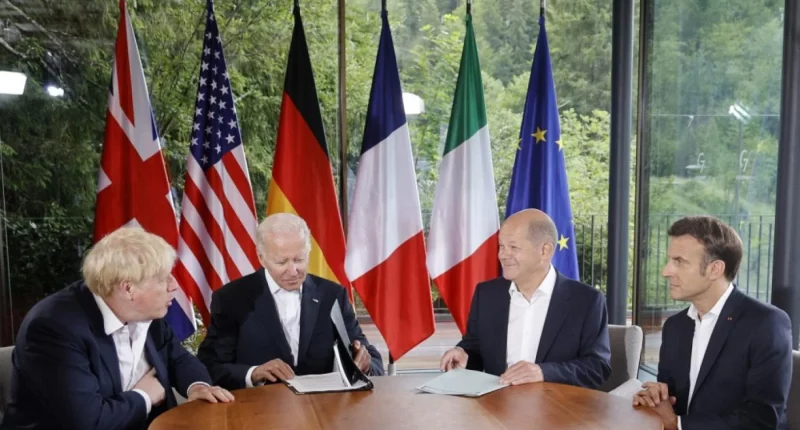The leaders of the United States, Britain, France and Germany held a conversation on efforts to revive the 2015 Iran nuclear deal, the White House said on Sunday.
“In addition, they discussed ongoing negotiations over Iran’s nuclear program, the need to strengthen support for partners in the Middle East region, and joint efforts to deter and constrain Iran’s destabilizing regional activities,” the White House said in its description of the call among the four.
No further details were given regarding the Middle Eastern portion of the discussion among US President Joe Biden, British Prime Minister Boris Johnson, French President Emmanuel Macron, and German Chancellor Olaf Scholz.
The European Union and US last week said they were studying Iran’s response to what the EU has called its “final” proposal to revive the deal, under which Tehran curbed its nuclear programme in return for economic sanctions relief.
Failure in the nuclear negotiations could raise the risk of a regional war, with Israel threatening military action against Iran if diplomacy fails to prevent Tehran from developing a nuclear weapons capability.
Iran, which has long denied having such ambitions, has warned of a “crushing” response to any Israeli attack.
In 2018, then-US President Donald Trump reneged on the nuclear deal reached before he took office, calling it too soft on Iran, and reimposed harsh US sanctions, spurring Iran to begin breaching its limits on uranium enrichment.
According to sources with knowledge of the EU’s proposal, it stipulates that on the day after a new agreement is signed, sanctions on 17 Iranian banks as well as 150 economic institutions will be lifted.
It also says Tehran will immediately begin to reverse the steps it took to advance its nuclear technology, which is now beyond the scope of what the United Nations nuclear watchdog, the International Atomic Energy Agency, and the deal’s original signatories say is acceptable.
Iran’s stockpile of enriched uranium is now at 60 percent enrichment, its highest ever and a jump from the 3.67 percent limit set out by the deal, formally called the Joint Comprehensive Plan of Action (JCPOA). Enrichment at 90 percent is needed to build a nuclear bomb.
Source:aljazeera.com





